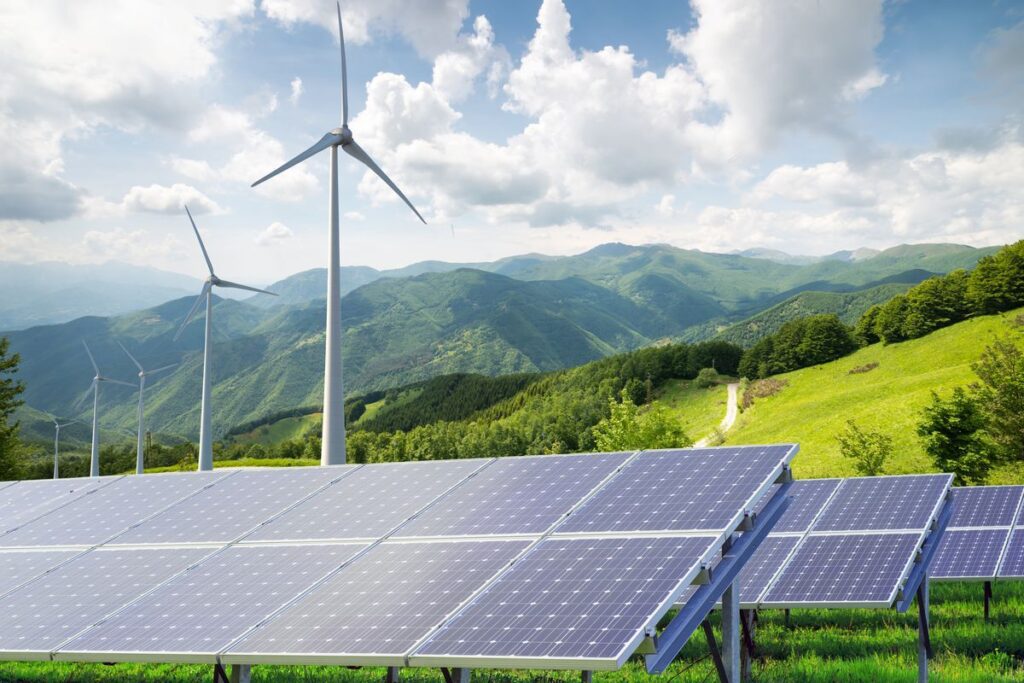The Federal Ministry of Environment, in collaboration with the Nigeria Wind Energy Council (NWEC), has officially launched the Youth for Wind, Climate and Innovation (YWCI) initiative — a groundbreaking programme aimed at empowering Nigerian youth to lead the country’s clean energy transition through wind energy innovation, policy engagement, and grassroots action.
The launch event, held recently in Abuja, brought together government officials, development partners, private sector stakeholders, and young innovators to chart a new course for Nigeria’s renewable energy future.
With over 60% of Nigeria’s 220 million population under the age of 30, the initiative recognizes young people as pivotal drivers of the nation’s sustainable energy transformation.
Delivering the keynote address, Dr. Iniobong Abiola-Awe, Director of the Department of Climate Change at the Ministry, stated:
“When the wind of change blows, some build walls, but others build turbines. Nigerian youth must be equipped to harness both the literal and metaphorical winds of change to power our nation’s future.”
A statement issued by the organisers noted that Nigeria faces one of the world’s largest energy access deficits, with over 85 million people lacking grid electricity. It emphasized that the YWCI initiative seeks to address this challenge by mobilizing young Nigerians to champion wind energy solutions — particularly in the northern corridor, where wind resources remain largely untapped.
Omiesam Ibanibo, NWEC’s Partnerships and Market Intelligence Lead, acknowledged the gains made by solar energy but stressed that it is not sufficient to close the nation’s energy gap.
“Wind energy, especially in Nigeria’s northern regions, is essential for achieving universal energy access,” she said.
The YWCI programme is built on four foundational pillars:Education and Awareness – Promoting wind energy literacy across communities; Innovation and Research – Supporting youth-led technological breakthroughs; Community Engagement – Driving climate action at the grassroots; Policy and Governance – Ensuring youth inclusion in energy policymaking.
According to the statement, the initiative has already garnered strong backing from key federal ministries and international development partners.
Mr. Oyekan Adedayo, representing the Federal Ministry of Youth Development, reaffirmed the government’s commitment to “creating youth-centred, climate-responsive development policies” and recognizing young people as “partners, leaders, and innovators capable of shaping climate policy.”
Development partners such as the GIZ Nigeria Energy Support Programme, the British High Commission, and the African Continental Free Trade Area (AfCFTA) Coordination Office also pledged continued support for scaling youth-led clean energy innovations across Africa.
A highlight of the event was a showcase by Emmanuel Abbah, founder and CEO of Waste2Light Ltd., who presented a locally developed wind turbine optimized for Nigeria’s conditions. The turbine features 3D-printed blades made from recycled plastic waste and rice husks, highlighting the potential of circular economy solutions in the energy sector.
The programme’s continental ambitions were underscored by a virtual presentation from Kenyan youth representatives, who encouraged Nigerian participants to see themselves as “the next African champions in wind energy and digital innovation.”
The YWCI initiative also emphasizes digital storytelling and social media engagement as essential tools for broadening energy awareness. Participants will use hashtags such as #YWCI and #NigeriaWindEnergy to amplify their voices and build a vibrant online community.
Victoria Iyang Titus, Director at the Department of Climate Change, concluded by noting:
“Collaboration, idea-sharing, and knowledge exchange are key to unlocking wind energy’s potential and driving our clean energy future.”















